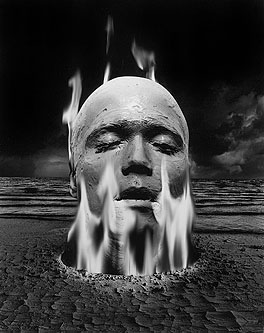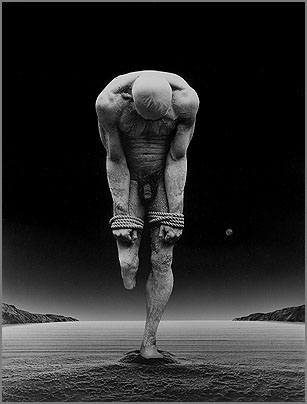
ShowCases: 3 Sisters, Mikado, 12th Night, Hamlet, The Importance of Being Earnest, Dangerous Liaisons, Don Juan
Summary
Others say that Athena blinded the young Tiresias by covering his eyes with her hands when he surprised her naked. Tiresias' mother, the nymph Chariclo who was dear to Athena and one of her attendants, asked the goddess to restore his sight, but Athena, not being able to do so, cleansed instead his ears in such a way that she caused him to understand the sounds of birds. Athena also gave Tiresias a staff made of cornel-wood with the help of which he could walk like those who can see.It is also said that Athena did not take the sight of young Tiresias; as the goddess explained to Chariclo, these were the old laws of Cronos, which inflicted the penalty of blindness on any mortal who beheld an immortal without consent. Since Tiresias' blindness could therefore not be taken back, Athena bestowed on him the power to utter oracles, to understand the birds (the bird-observatory of Tiresias could still be visited many generations after his death), to live a long life, and after his death, to keep his understanding among the dead.

Mikado
Questions
"Come, tell me, where have you proved yourself a seer? Why, when the Sphinx was here, did you say nothing to free the people? Yet the riddle, at least, was not for the first comer to read: there was need of a seer's help, and you were discovered not to have this art, either from birds, or known from some god. But rather I, Oedipus the ignorant, stopped her, having attained the answer through my wit alone, untaught by birds." [Oedipus to Tiresias.Sophocles, Oedipus the King 390]Notes
"The man who practices the prophet's art is a fool; for if he happens to give an adverse answer, he makes himself disliked by those for whom he takes the omens; while if he pities and deceives those who are consulting him, he wrongs the gods." [Tiresias to his daughter. Euripides, Phoenicia Women 955] The Theban seer Tiresias, son of the shepherd Everes, was given by Zeus the art of soothsaying.Still others affirm that Tiresias was once watching two snakes copulating, and when he wounded the female he was turned into a woman; but later he saw the same snakes copulating again, and having wounded the male, he was transformed into a man.
Tiresias remained a woman for seven years, and became a man again in the eighth. It is told that when Zeus and Hera once disputed whether the pleasures of love are better enjoyed by women or by men, they referred to Tiresias for a decision on account of his knowledge of both sides of love. Tiresias then told them that
"Of ten parts a man enjoys one only, but a woman enjoys the full ten parts in her heart." [Apollodorus, Library 3.6.7]
Tiresias is said to have lived an exceptionally long life. According to some, he lived for seven generations, whereas others say nine. In any case, he lived from the times of Cadmus, the founder of Thebes, to the times of the war of the EPIGONI. This war followed the one of the SEVEN AGAINST THEBES in which Oedipus' sons quarrelled for the throne when their father left Thebes, after having learnt from Tiresias that he had killed his own father and wedded her mother.
Tennyson:
TO E. FITZGERALD
OLD FITZ, who from your suburb grange,
Where once I tarried for a while,
Glance at the wheeling orb of change,
And greet it with a kindly smile;
Whom yet I see as there you sit
Beneath your sheltering garden-tree,
And watch your doves about you flit,
And plant on shoulder, hand, and knee,
Or on your head their rosy feet,
As if they knew your diet spares
Whatever moved in that full sheet
Let down to Peter at his prayers;
Who live on milk and meal and grass;
And once for ten long weeks I tried
Your table of Pythagoras,
- And seem'd at first "a thing enskied,"
As Shakespeare has it, airy-light
To float above the ways of men,
Then fell from that half-spiritual height
Chill'd, till I tasted flesh again
One night when earth was winter-b]ack,
And all the heavens flash'd in frost;
And on me, half-asleep, came back
That wholesome heat the blood had lost,
And set me climbing icy capes
And glaciers, over which there roll'd
To meet me long-arm'd vines with grapes
Of Eshcol hugeness- for the cold
Without, and warmth within me, wrought
To mould the dream; but none can say
That Lenten fare makes Lenten thought
Who reads your golden Eastern lay,
Than which I know no version done
In English more divinely well;
A planet equal to the sun
Which cast it, that large infidel
Your Omar, and your Omar drew
Full-handed plaudits from our best
In modern letters, and from two,
Old friends outvaluing all the rest,
Two voices heard on earth no more;
But we old friends are still alive,
And I am nearing seventy-four,
While you have touch'd at seventy-five,
And so I send a birthday line
Of greeting; and my son, who dipt
In some forgotten book of mine
With sallow scraps of manuscript,
And dating many a year ago,
Has hit on this, which you will take,
My Fitz, and welcome, as I know,
Less for its own than for the sake
Of one recalling gracious times,
When, in our younger London days,
You found some merit in my rhymes,
And I more pleasure in your praise.
I WISH I were as in the years of old
While yet the blessed daylight made itself
Ruddy thro' both the roofs of sight, and woke
These eyes, now dull, but then so keen to seek
The meanings ambush'd under all they saw,
The flight of birds, the flame of sacrifice,
What omens may foreshadow fate to man
And woman, and the secret of the Gods.
My son, the Gods, despite of human prayer,
Are slower to forgive than human kings.
The great God Ares burns in anger still
Against the guiltless heirs of him from Tyre
Our Cadmus, out of whom thou art, who found
Beside the springs of Dirce, smote, and still'd
Thro' all its folds the multitudinous beast
The dragon, which our trembling fathers call'd
The God's own son.
A tale, that told to me,
When but thine age, by age as winter-white
As mine is now, amazed, but made me yearn
For larger glimpses of that more than man
Which rolls the heavens, and lifts and lays the deep,
Yet loves and hates with mortal hates and loves,
And moves unseen among the ways of men.
Then, in my wanderings all the lands that lie
Subjected to the Heliconian ridge
Have heard this footstep fall, altho' my wont
Was more to scale the highest of the heights
With some strange hope to see the nearer God.
One naked peak‹the sister of the Sun
Would climb from out the dark, and linger there 30
To silver all the valleys with her shafts‹
There once, but long ago, five-fold thy term
Of years, I lay; the winds were dead for heat-
The noonday crag made the hand burn; and sick
For shadow‹not one bush was near‹I rose
Following a torrent till its myriad falls
Found silence in the hollows underneath.
There in a secret olive-glade I saw
Pallas Athene climbing from the bath
In anger; yet one glittering foot disturb'd
The lucid well; one snowy knee was prest
Against the margin flowers; a dreadful light
Came from her golden hair, her golden helm
And all her golden armor on the grass,
And from her virgin breast, and virgin eyes
Remaining fixt on mine, till mine grew dark
For ever, and I heard a voice that said
"Henceforth be blind, for thou hast seen too much,
And speak the truth that no man may believe."
Son, in the hidden world of sight that lives
Behind this darkness, I behold her still
Beyond all work of those who carve the stone
Beyond all dreams of Godlike womanhood,
Ineffable beauty, out of whom, at a glance
And as it were, perforce, upon me flash'd
The power of prophesying‹but to me
No power so chain'd and coupled with the curse
Of blindness and their unbelief who heard
And heard not, when I spake of famine, plague
Shrine-shattering earthquake, fire, flood, thunderbolt,
And angers of the Gods for evil done
And expiation lack'd‹no power on Fate
Theirs, or mine own! for when the crowd would roar
For blood, for war, whose issue was their doom,
To cast wise words among the multitude
Was fiinging fruit to lions; nor, in hours
Of civil outbreak, when I knew the twain
Would each waste each, and bring on both the yoke
Of stronger states, was mine the voice to curb
The madness of our cities and their kings.
Who ever turn'd upon his heel to hear
My warning that the tyranny of one
Was prelude to the tyranny of all?
My counsel that the tyranny of all
Led backward to the tyranny of one?
This power hath work'd no good to aught that lives
And these blind hands were useless in their wars.
O. therefore, that the unfulfill'd desire,
The grief for ever born from griefs to be
The boundless yearning of the prophet's heart‹
Could that stand forth, and like a statue, rear'd
To some great citizen, wim all praise from all
Who past it, saying, "That was he!"
In vain!
Virtue must shape itself im deed, and those
Whom weakness or necessity have cramp'd
Withm themselves, immerging, each, his urn
In his own well, draws solace as he may.
Menceceus, thou hast eyes, and I can hear
Too plainly what full tides of onset sap
Our seven high gates, and what a weight of war
Rides on those ringing axlesl jingle of bits,
Shouts, arrows, tramp of the horn-footed horse
That grind the glebe to powder! Stony showers
Of that ear-stunning hail of Ares crash
Along the sounding walls. Above, below
Shock after shock, the song-built towers and gates
Reel, bruised and butted with the shuddering
War-thunder of iron rams; and from within
The city comes a murmur void of joy,
Lest she be taken captive‹maidens, wives,
And mothers with their babblers of the dawn,
And oldest age in shadow from the night,
Falling about their shrines before their Gods,
And wailing, "Save us."
And they wail to thee!
These eyeless eyes, that cannot see thine own,
See this, that only in thy virtue lies
The saving of our Thebes; for, yesternight,
To me, the great God Ares, whose one bliss
Is war and human sacrifice‹himself
Blood-red from battle, spear and helmet tipt
With stormy light as on a mast at sea,
Stood out before a darkness, crying, "Thebes,
Thy Thebes shall fall and perish, for I loathe
The seed of Cadmus‹yet if one of these
By his own hand‹if one of these‹"
My son, No sound is breathed so potent to coerce,
And to conciliate, as their names who dare
For that sweet mother land which gave them birth
Nobly to do, nobly to die. Their names,
Graven on memorial columns, are a song
Heard in the future; few, but more than wall
And rampart, their examples reach a hand
Far thro' all years, and everywhere they meet
And kindle generous purpose, and the strength
To mould it into action pure as theirs.
Fairer thy fate than mine, if life's best end
Be to end well! and thou refusing this,
Unvenerable will thy memory be
While men shall move the lips; but if thou dare‹
Thou, one of these, the race of Cadmus‹then
No stone is fitted in yon marble girth
Whose echo shall not tongue thy glorious doom,
Nor in this pavement but shall ring thy name
To every hoof that clangs it, and the springs
Of Dirce laving yonder battle-plain,
Heard from the roofs by night, will murmur thee
To thine own Thebes, while Thebes thro' thee shall stand
Firm-based with all her Gods.
The Dragon's cave
Half hid, they tell me, now in flowing vines‹
Where once he dwelt and whence he roll'd himself
At dead of night‹thou knowest, and that smooth rock
Before it, altar-fashion'd, where of late
The woman-breasted Sphinx, with wings drawn back
Folded her lion paws, and look'd to Thebes.
There blanch the bones of whom she slew, and these
Mixt with her own, because the fierce beast found
A wiser than herself, and dash'd herself
Dead in her rage; but thou art wise enough
Tho' young, to love thy wiser, blunt the curse
Of Pallas, bear, and tho' I speak the truth
Believe I speak it, let thine own hand strike
Thy youthful pulses into rest and quench
The red God's anger, fearing not to plunge
Thy torch of life in darkness, rather thou
Rejoicing that the sun, the moon, the stars
Send no such light upon the ways of men
As one great deed.
Thither, my son, and there
Thou, that hast never known the embrace of love
Offer thy maiden life.
This useless hand!
I felt one warm tear fall upon it. Gone!
He will achieve his greatness.
But for me I would that I were gather'd to my rest,
And mingled with the famous kings of old
On whom about their ocean-islets flash
The faces of the Gods‹the wise man's word
Here trampled by the populace underfoot
There crown'd with worship and these eyes will find
The men I knew, and watch the chariot whirl
About the goal again, and hunters race
The shadowy lion, and the warrior-kings
In height and prowess more than human, strive
Again for glory, while the golden lyre
Is ever sounding in heroic ears
Heroic hymns, and every way the vales
Wind, clouded with the grateful incense-fume
Of those who mix all odor to the Gods
On one far height in one far-shining fire.
----------
"One height and one far-shining fire!"
And while I fancied that my friend
For this brief idyll would require
A less diffuse and opulent end,
And would defend his judgment well,
If I should deem it over nice‹
The tolling of his funeral bell
Broke on my Pagan Paradise,
And mixt the dream of classic times,
And all the phantoms of the dream,
With present grief, and made the rhymes,
That miss'd his living welcome, seem
Like would-be guests an hour too late,
Who down the highway moving on
With easy laughter find the gate
Is bolted, and the master gone.
Gone onto darkness, that full light
Of friendship! past, in sleep, away
By night, into the deeper night!
The deeper night? A clearer day
Than our poor twilight dawn on earth‹
If night, what barren toil to be!
What life, so maim'd by night, were worth
Our living out? Not mine to me
Remembering all the golden hours
Now silent, and so many dead,
And him the last; and laying flowers,
This wreath, above his honor'd head,
And praying that, when I from hence
Shall fade with him into the unknown,
My close of earth's experience
May prove as peaceful as his own.
















